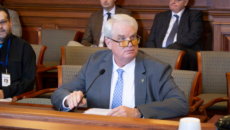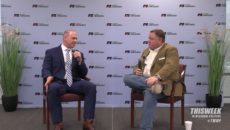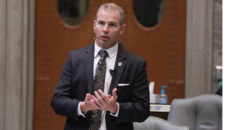In 2021, the FDA’s approval of Ozempic as a weight-loss drug marked a significant milestone in obesity treatment. Soon after, other GLP-1 agonists gained FDA approval for weight loss, offering hope to millions battling obesity—a leading cause of severe health conditions. These medications have transformed lives, but their popularity outstripped supply, creating a dangerous gap filled by counterfeit drugs.
The legitimate pharmaceutical industry, designed to help patients achieve healthier lives, now faces a critical challenge: warning consumers about hazardous knockoffs. These counterfeit GLP-1 drugs, often marketed as affordable alternatives, exploit regulatory loopholes to enter the U.S. from countries like China. Ingredients from unregulated labs are frequently labeled “for research purposes” or “not for human consumption,” evading U.S. Customs scrutiny. Tragically, these substances end up in counterfeit medications that Americans inject, leading to serious injuries and, in some cases, death.
The FDA has documented over 1,000 adverse event reports linked to these knockoffs, though the true number of affected individuals is likely far higher. Unlike U.S.-manufactured drugs, which undergo rigorous FDA testing to ensure safety, counterfeit versions rely on substandard ingredients from unregulated sources. Notably, China prohibits these substandard ingredients in its domestic drug supply but allows their export, underscoring their risks.
Attorneys General from 38 states have raised alarms about online platforms using deceptive marketing to promote these unapproved drugs, falsely implying FDA approval. These sellers exploit consumer demand for affordable options, but their low prices come at a steep cost: compromised safety.
Fortunately, market dynamics are shifting. As competition grows and development costs are recouped, GLP-1 drug prices are decreasing. Additionally, more insurance providers recognize the long-term benefits of covering these medications, reducing healthcare costs through fewer doctor visits and hospitalizations—a win for patients and insurers alike.
The Trump Administration has prioritized domestic drug manufacturing, significantly boosting the production of safe GLP-1 drugs and eliminating the shortages. Today there is no need for risky alternatives. However, stronger action is needed. The FDA, U.S. Customs Service, and Federal Trade Commission must intensify efforts to block these dangerous imports. Public education is equally critical to protect consumers from misleading marketing and unsafe products.
By working together, we can safeguard the integrity of the U.S. drug supply chain—the safest in the world—and ensure patients have access to life-changing medications without risking their health.

Councilwoman form O’Fallon, Missouri and a former National Committeewoman for the Missouri Young Republicans









